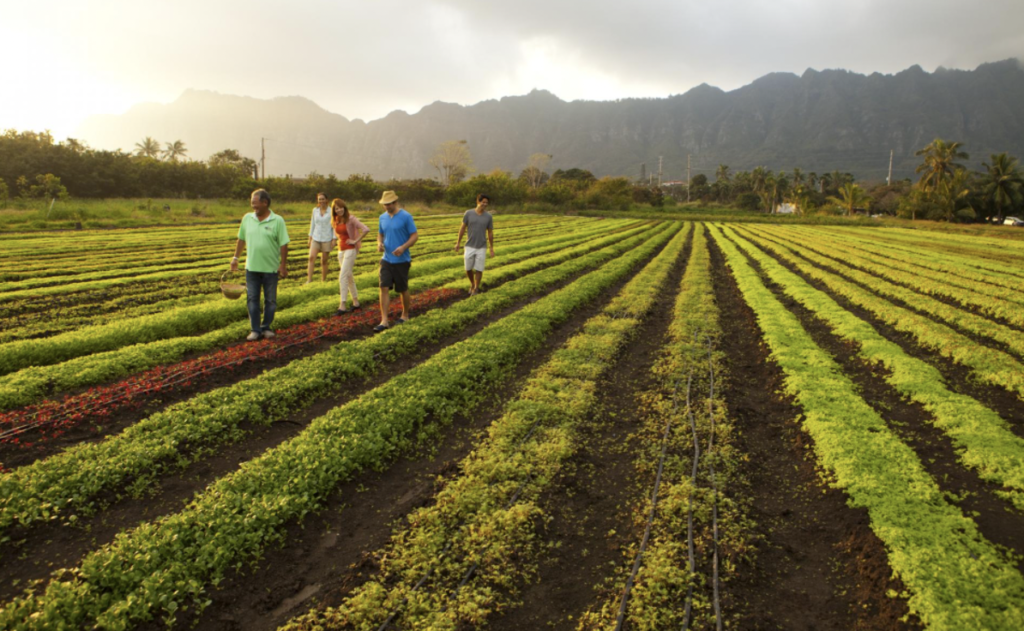
2021 Policy and Legislative Updates
As many of you may know, HFUU is a division of the National Farmer Union (NFU). NFU has described that success and credibility of the organization has been the union’s grassroots structure in which policy positions are initiated locally- the policy process includes the presentation of resolutions by individuals, followed by possible adoption of the resolutions at the local, state and national levels.
In 2020, the HFUU Policy Committee members convened in many online meetings and offered significant amendments to HFUU’s 2020 Policy Statement that was adopted by at the HFUU 2020 convention. I would like to thank all the members of the Policy Committee including David S. Case, Maureen Datta, Vincent Kimura, Vincent Mina, Mimi Desjardins, and Don Heacock.
In my view, our policy statement and process offers a full spectrum of our family farmers current needs and approaches to increasing local food production. Our legislative initiatives aim at realizing some of the most pressing needs established of the policy statement. Here are some of the highlights of policies adopted at 2020 Convention:
● MIssion, vision & preamble- for the first time in the last five years, an updated mission and vision statement was adopted and a new one-paragraph for the preamble;
● Feeding during disaster, Policy 3– several policies were adopted in regards to including family farmers and food hubs in community food distribution efforts;
● Living on farms, Policy 6– HFUU members continue to support farmers living on farms with the adoption of policies that encourage counties to be more active in supporting farmer and farm worker housing, in part, as a strategy to increase local food production;
● Food safety by farmers, Policy 13– policy was adopted to eliminate third party food safety requirements for farmers and that “appropriate food safety certification system should require a farmer to identify farm location and contact through the label, maintain a liability insurance policy for its products, and permit health officials to inspect the farm in the event of food borne illness.”
However, and as we saw in 2020, little success was done on any HFUU sponsored legislation affecting agriculture, family farmers, and funding or appropriations for programs. We were told by representatives that there would not be any appropriations this year. HFUU continues to collaborate with farmer allies such as Farm 2 School Hui, the Ag Hui, and the Local Food Coalition for legislative efforts.
In their recap of the 2021 legislative session, the local food coalition wrote:
Due to the pandemic, the State Capitol was closed to the public so all hearings were conducted via videoconference. The 2021 legislative session began with the state facing a $1.4 billion shortfall and talks of state employee furloughs and layoffs.
The food hub pilot program was a bill introduced by Senator Mike Gabbard in 2020 and introduced again in 2021 and promoted by HFUU. For the second year in a row, this bill received over 300 pages of positive testimonies from farmers, food hubs, farmer organizations and nonprofits, counties, departments of health, planning, agriculture and University of Hawaii. The bill died as the House Committee on finance decided not to hear it before the cut-off date. A civil beat article highlighted how Hawaii’s food hubs continue to organize and seek funding despite the lack of support at the legislature. Counties are more actively taking up the role.
Some legislative efforts that were passed this session and that support HFUU members include the expansion of the Hawaii Healthy Food Incentive Program (also known as the Double Up Food Bucks Program) through SB512, and two bills (HB767 and HB817) that aim to increase locally grown foods purchased by the DOE and other institutional departments.
I’d like to recognize all the members of the HFUU 2021 Legislative Committee including Cindy Evans, Dash Kuhr, James McCay, Hunter Heaivilin, and Vincent Kimura. The committee suggested that HFUU allocate some funding to hire staff to be more active in the legislature to improve public relations and lobbying on behalf of our family farmers at the next session.
Better news and support for farmers could be found on county level. Maui county continues to support the HFUU programs and specific farm members. HFUU leaders Vincent Mina, Maureen Datta, and Anny Bruch with all Hawaii Island Chapter Presidents initiated talks with Mayor Mitch Roth to work closer with family farmers in each of the regions. This is part of an HFUU strategy to support farmers on a county level. On Oahu, Honolulu C&C through Council Bill 6 secured $5 million in funding for local farmers for a Honolulu Agriculture Grant Program to be administered by the City’s Office of Economic Revitalization.
Now we are looking forward to the 2022 legislative session. I want to encourage HFUU members to be active and to participate with the policy forum by suggesting new and amending existing policies to guide future legislative efforts and collaborations. Currently, top priorities on HFUU’s list include:
● Disaster support for family farmers, farm workers, and linking locally grown food to foodbanks and non-profits in response to community needs for food distributions
● Support for growers to increase regenerative agriculture practices
● Support for Hawaii’s food hubs to strengthen local food distribution from farm-to-consumers
● Support for future & beginning farmers through farmer training and access to land programs
● Support for on-farm housing for farmers, farm-workers, and farm tourism activities
Thank you for allowing me to give you this 20/21 policy and legislative update. For any questions or comments, please send me an email at sazizi@asi-hawaii.org.
Me ke Aloha,
Saleh Azizi, Chair
Hawaii Farmers Union United, Policy Committee and Legislative Committee
